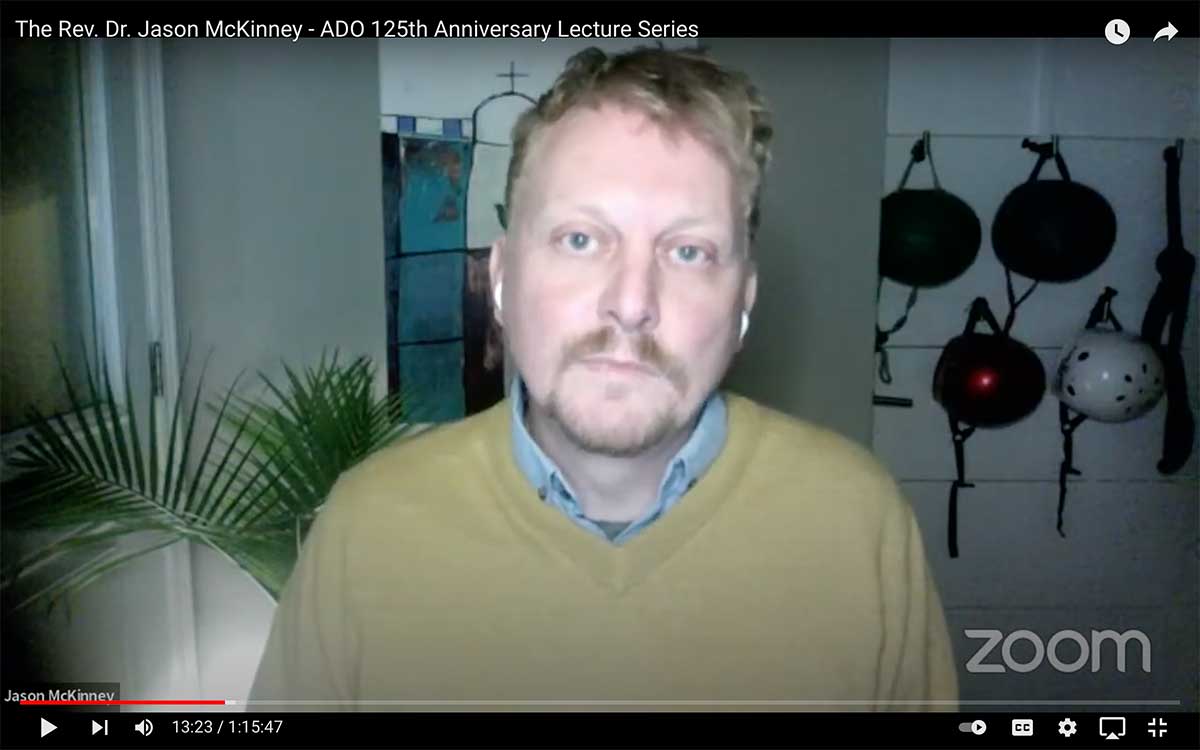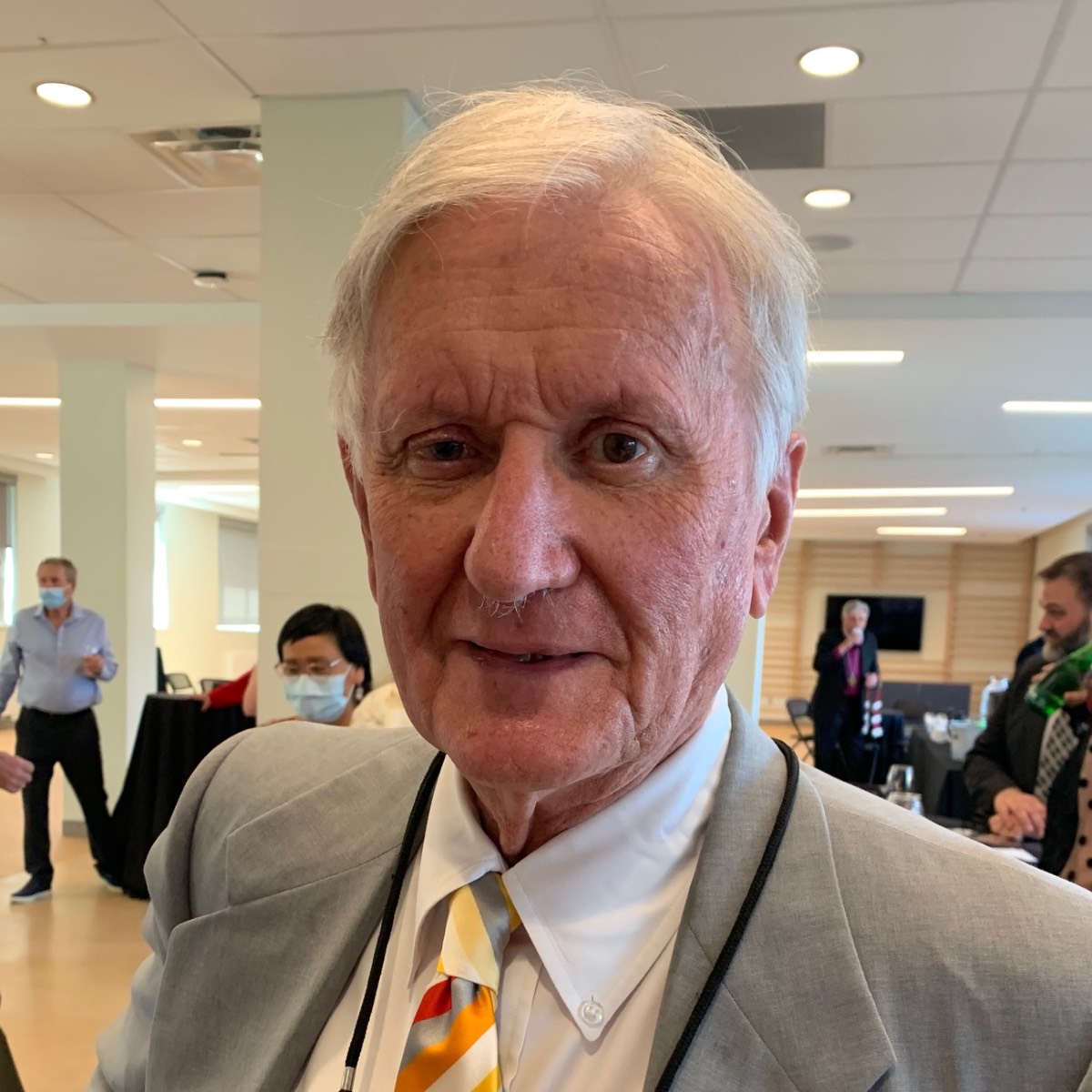The church needs to rethink its relationship to land and draw on early Christian teachings to serve the interests of the whole community. This was the theme of the Rev. Dr. Jason McKinney, as he delivered the second of four lectures in celebration of the Anglican Diocese of Ottawa’s 125th anniversary.
McKinney described what he called the property paradigm and the commons paradigm. The first is all about “having” property exclusively while the “commons” paradigm is about “holding, sharing and relationships.”
He spoke passionately about the church in decline – “the great unravelling” as it has been called by author Alan Roxburgh, the loss of political and cultural power that churches once had, but he noted that many are still rich in land.
Faced with declining resources, McKinney said, there is a risk that churches will tighten rather than loosen their grip on land, as one of their last remaining financial certainties. But what is the point of institutional survival if it comes at the expense of the spiritual? The church must reckon with its past if it is to reimagine its future, he said.
McKinney was not arguing for a revolution or the abolition of private property but for finding ways to use property for the benefit of others. It is imperative to implement a “commoning” approach, making church lands available for the good of the community, he said.
“Commoning starts with getting to know your neighbours,” he said.
Church lands can be sites of stable affordable housing such as those at the Christ Church Bells Corners and Julian of Norwich. McKinney praised Diocese of Ottawa as “a beacon and an example of how the church should be with regard to affordable housing.”
There is a need to cultivate spiritual practices of sharing. There is no single Christian teaching on land but several and they are about sharing.
Faced with an affordable housing crisis, “We can’t afford to do nothing,” he said. But it’s not just about creating units; it’s about community, the kind of community we want to build for the future. It begins with what we want to happen and then working to make it happen.
(The Homelessness and Affordable Housing Working Group of the Diocese of Ottawa, recognizing that it’s not only about shovels in the ground, encourages “action, advocacy and prayer.”)
Asked about the church’s role in advocacy, McKinney said that while there is a role for the church in influencing government, it will have more impact if there is “skin in the game.” And the church has more to offer than an ability to influence politicians.
More widely, he said: “I believe we have become a church of having without holding when what we are called to be is a church that has learned to hold without having.”
He called for spiritual renewal, feeding on the sharing teachings of the early church, reaching the highest levels of leadership. “If you can bring that spirituality with you into your synods, your annual vestries, your AGMs, your corporate meetings, your neighbourhood councils, your community consultations and development approval meetings, then I believe the commoning spirit will fill those spaces too.”
McKinney is the incumbent at the Church of The Epiphany and St Mark in Toronto and adjunct professor of theology at Trinity College. He has leveraged an aging church building to develop a network of community partners. He was a two-term founding member of the Parkdale Neighbourhood Land Trust.
Bishop Shane Parker, in words of thanks, said the lecture was “substantial and thoughtful” and his remarks about the church leadership “and others who work in Synod offices were well taken.”
The full lecture may be viewed on the Anglican Diocese of Ottawa YouTube website.


Saint Mary’s Church, Westmeath — Deanery of the Northwest